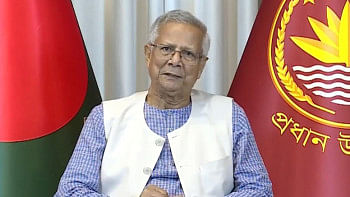The High Court yesterday questioned the legality of the Election Commission's rejection of an application for cancelling the candidacy of 25 Jamaat-e-Islami leaders.
The court issued a rule asking the EC, government and the Jamaat leaders to explain in four weeks why the EC's decision should not be declared illegal.
The HC bench of Justice ABM Hassan and Justice Md Khairul Alam came up with the rule following a petition filed by Bangladesh Tariqat Federation and Amra Muktijoddhar Santan challenging the EC order issued on December 23.
The bench, however, refused to direct the EC to treat the Jamaat leaders as disqualified for the December 30 election as prayed by the petitioners.
The HC order means there is no legal bar for the Jamaat leaders to take part in the election, Deputy Attorney General Motaher Hossain Sazu told The Daily Star.
Of the Jamaat men, 21 are in the race as BNP nominees and four are independents.
During yesterday's hearing, lawyer Tania Amir told the court that the HC in a verdict in 2013 had declared Jamaat's registration with the EC illegal.
The HC verdict is still in force and the 25 leaders have not resigned from the party. Therefore, they cannot be allowed to contest the election, she said.
Jamaat's appeal challenging the HC verdict is pending with the Appellate Division of the Supreme Court, but the Jamaat leaders taking part in the election have not informed the EC about it, which is an obvious fraudulence, she argued.
Ruhul Quddus Kazal, lawyer for two of the Jamaat leaders, said the candidates were not running as Jamaat men. Therefore, there is no legal bar for them to contest.



 For all latest news, follow The Daily Star's Google News channel.
For all latest news, follow The Daily Star's Google News channel. 


